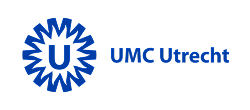University Medical Center Utrecht

University Medical Center Utrecht (UMCU) is one of the largest academic centres in the Netherlands and part of Utrecht University, one of the top 50 universities in the world and the best university in the Netherlands. The Regenerative Medicine Center Utrecht (RMCU) houses several shared core facilities, including cell culture labs (for e.g., stem cells and organoids) and a biofabrication facility, flow cytometry, microscopy, and histology facilities. The Innovation Center for Advanced Therapies (ICAT) aims to improve and accelerate the translation of research into healthcare solutions by bringing together all relevant expertise and infrastructure for the development and GMP translation of ATMPs.
Work in m2M
The UMCU partner leads the Bioprinting osteochondral grafts for regeneration of the femoral condyle work package with the following objectives:
- Biofabrication of neo-osteochondral tissues, using a combination of (i) endochondral bone forming microtissues, hyaline cartilage microtissues & immune-modulating microtissues, and (ii) multimaterial-MEW
- Ex vivo characterization of neo-osteochondral tissue grafts to evaluate mechanical stability, and immunoprotective effect of neo-osteochondral tissue grafts
- Expand graft shape and size to human scale, incorporating anisotropic properties and complex joint contours obtained from medical imaging
UMCU-ICAT leads the GMP readiness and GMP simulation task with the following objectives:
- Investigate the bioprinting system compliance with the GMP guidelines for the production of (Investigational) Advanced Therapy Medicinal Products (ATMPs).
- Evaluate Standard Operational Procedures (SOP) for the ATMP manufacturing.
- Develop GMP conform biomanufacturing procedure to ensure consistency, quality & GMP compliance
As such, UMCU provides the expertise on the (convergence) of reinforcing MEW strategy and on the clinical translation of regenerative strategies.
Host Institutions/Labs
Past Publications
- De Ruijter et al., Orthotopic equine study confirms the pivotal importance of structural reinforcement over the pre‐culture of cartilage implants. Bioengineering and Translational Medicine 0(0) Wiley 2380-6761
- Ainsworth et al., Covalent Protein Immobilization on 3D-Printed Microfiber Meshes for Guided Cartilage Regeneration. Advanced Functional Materials 33(2).Wiley 2023.1616-301X
- Größbacher et al., Volumetric Printing Across Melt Electrowritten Scaffolds Fabricates Multi-Material Living Constructs with Tunable Architecture and Mechanics. Adv Mater. 2023 Aug;35(32):e2300756
- Peiffer et al., Melt electrowriting onto anatomically relevant biodegradable substrates: Resurfacing a diarthrodial joint. Mater Des. 2020 Aug 4;195:109025
- Schwab et al., Printability and Shape Fidelity of Bioinks in 3D Bioprinting. Chem Rev. 2020 Oct 14;120(19):11028-11055